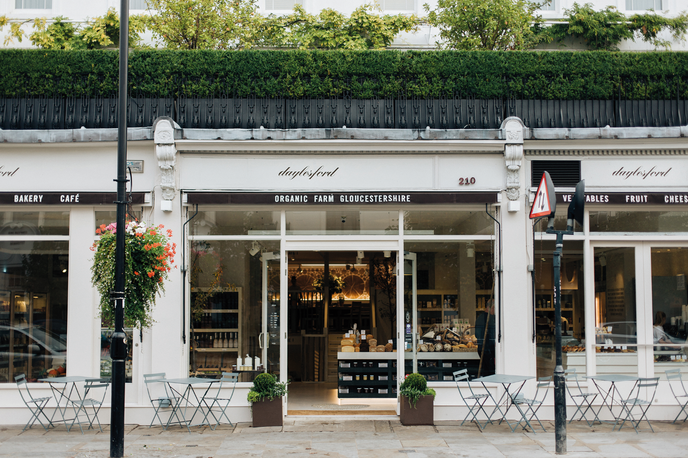Free digital copy
Get Speciality Food magazine delivered to your inbox FREE
Get your free copy
Daylesford has been leading the way towards a greener future since its inception over forty years ago. What began as a simple passion for real food and a desire to feed our children better has grown into one of the most sustainable organic farms in the UK. Now, with five farmshops and cafés in London and the Cotswolds, the family-owned organic farm is fully certified by the Soil Association.
Daylesford’s core sustainability principles include a zero waste pledge, with a commitment to not wasting a scrap of food by composting, reusing and recycling at every opportunity. To further their efforts, Daylesford has partnered with Too Good To Go to help tackle the serious issue of food waste and counter the negative environmental impact associated with the overproduction and wastage of food.
Jamie Crummie, Co-Founder of the food waste fighting app explains, “food waste is a huge problem, which is thankfully becoming more widely spoken about and acknowledged by the public and businesses alike, however there’s still a long way to go. If we all stopped wasting food, the benefit to our planet would be the equivalent of taking 1 in 4 cars off the road.”
Too Good To Go is a unique easy-to-use app that allows delis, cafés and food businesses to sell their surplus food directly to customers. Since 2016, more than 4,300 UK businesses have taken action to combat food waste through the app and 3.2 million Brits have downloaded it.
Using Too Good To Go is very straightforward. Businesses simply update the app to show the amount of surplus food they have to sell. Rather than listing individual portions of food, they’ll fill a ‘Magic Bag’ with tasty items that haven’t sold in time, setting a price that’s fair for them and the customer. Customers search the app for local Magic Bags, purchase one via the app, then collect the order at the designated time set by the store.
In addition to helping with the environmental issues associated with food waste, Too Good To Go allows Daylesford and its partner businesses to recuperate otherwise sunk costs.

Will Dennis, London Regional Operations Manager at Daylesford elaborates, “at Daylesford we like to select partners who share our brand values and can improve our customer offer. Too Good To Go is an attractive partner because the recovery of food through the customer app is just the tip of an iceberg of a strategy to reduce food waste which includes a wealth of research and advice as part of their food waste movement project.
“Businesses have a shared responsibility with their suppliers and customers to reduce and rescue the 10 million tons of surplus food that is wasted in the UK each year, and as well as making ecological sense, Too Good To Go helps prevent businesses from wasting money on unsold products. We have filled a gap that allows us to redistribute food that our charity partners are unable to collect.”
Since partnering with Too Good To Go earlier this summer, the amount of surplus food saved equals 1570kg CO2e or the equivalent of 15 car rides from London to Manchester. But this is just the beginning. With sustainability continually climbing up the agenda, more food stores will look towards implementing processes to reduce their food waste, as well as seeking to replicate Daylesford’s environmental and economic success.
Speaking about the impact on business during lockdown due to the COVID-19 pandemic, Will explains, “the panic buying at the beginning of lockdown emptied our shelves, meaning there was hardly anything to go to waste; instead our focus then was on acquiring additional stock. During lockdown we quickly established a ‘new normal’ level of trade, and with controlled retail orders and our cafés closed we did not produce much surplus. After lockdown restrictions began to be lifted, sales dropped so there was an inevitable increase in surplus food in our farm shops and cafés. We had prepared for a tapering off, but the sudden dip in trade over the summer was unexpected.”
Too Good To Go not only helped Daylesford combat the unpredictable footfall seen throughout lockdown, but it also provided another benefit - bringing in new customers. Will explains, “our favourite additional outcome from the new partnership has been meeting with new customers through the app who then became regular visitors.”
Jamie added, “we are thrilled that Daylesford has furthered their definitive stand against food waste by making their surplus food available on the Too Good To Go app. With the app rapidly expanding throughout the UK, we hope many more stores will follow Daylesford’s lead and fight food waste with us, making great strides for the future of our planet.”
Businesses who want to find out more and join the fight against food waste can do so by signing up with the online Business Page form, and from there, one of Too Good To Go’s team members will be in touch.
Partner Content